The BEST episodes directed by Pierre De Lespinois
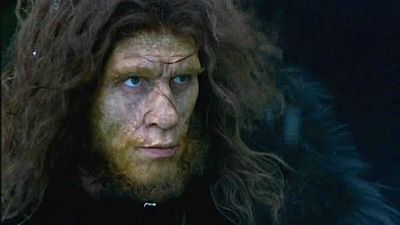
#1 - The Survivors
Walking with Cavemen - Season 1 - Episode 4
A focus on a group of Homo heidelbergensis, advanced tool users who lived in family units but who were incapable of imagination, and their descendents the Neanderthals and Homo sapiens, who came to conquer the world.
Watch Now:Amazon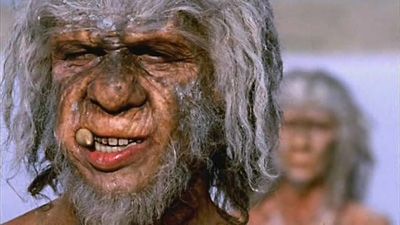
#2 - Savage Family
Walking with Cavemen - Season 1 - Episode 3
An extraordinary new breed of ape-man called homo ergaster has taken over Africa. They are expert tool-makers, food-finders and travellers, but where they differ most from their predecessors is in their communal lifestyle. The third instalment of Professor Robert Winston's series on human ancestry travels back one-and-half million years to explore this innovative creature.
Watch Now:Amazon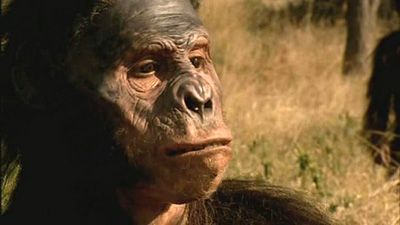
#3 - First Ancestors
Walking with Cavemen - Season 1 - Episode 1
Journeying millions of years into the past, Winston goes on the trail of Australopithecus afarensis, an ape who took the first step towards modern man.
Watch Now:Amazon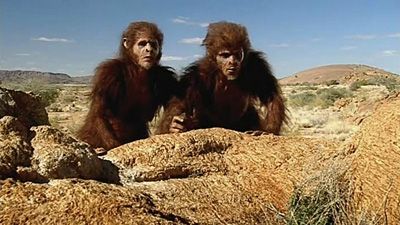
#4 - Blood Brothers
Walking with Cavemen - Season 1 - Episode 2
Two species of ape-man feature in the second of Professor Robert Winston's series on human ancestry: the gentle, root-munching Paranthropus boisei and the enterprising scavenger Homo habilis. Who had the best strategy for survival in their prehistoric world?
Watch Now:Amazon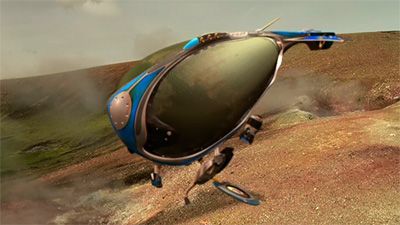
#5 - Alien Planet
Discovery Channel Documentaries - Season 2005 - Episode 30
What happens when we find life outside our own planet? Discovery Channel brings viewers on a virtual mission of the future. Right now, the search for planets with "life signatures" goes on. These efforts are global, and experts tell us on camera how this search for life is progressing around the world. No longer just the domain of science fiction, what could alien life really look like? Alien Planet dramatizes an exciting — and possible — answer. The drama takes place on Darwin IV, a fictional planet 6.5 light-years from Earth, with two suns and 60 percent gravity. Having identified Darwin as a world that could support life, Earth sends a pilot mission consisting of the mothership Von Braun and three probes: Balboa, Da Vinci and Newton. This unmanned fleet is responsible for finding and assessing any life-forms on Darwin IV. Initially, the expectation is to find microscopic life, but the probes soon find themselves in the middle of a developed ecosystem teeming with life of all sizes. The viewer experiences Darwin IV through the "eyes" of the probes Ike (Newton) and Leo (Da Vinci), whose data is relayed back to the mothership and then communicated to Earth. The biological and atmospheric data from the probes and mothership are relayed to viewers through computer voice simulation and on-screen readouts. Real scientists consider data in this planetary environment. They discuss the larger issues of the possibilities of life outside our solar system and deconstruct the animals on Darwin IV, basing the analysis on the laws of evolution and physics. Where possible, life-size animal images and the real probe prototypes will help the audience to understand the current, real basis of the search for other planets. Stephen Hawking, Michio Kaku and other big thinkers and scientists will participate in the discussion of where science is today. Other participants include Jack Horner, Craig Venter, George Lucas and NASA's chief scientist, Jim Garvin. The drama
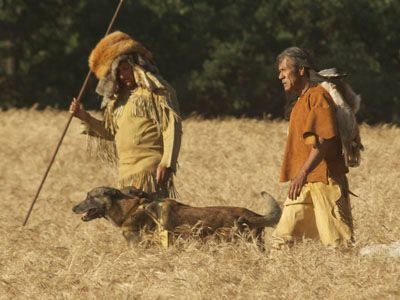
#6 - And Man Created Dog
National Geographic Documentaries - Season 2010 - Episode 27
If humans were as varied as dogs we would range in height up to 22 feet tall and in weight more than 1,000 pounds. In the ultimate canine ancestral story, NGC traces the genetic journey from wolf to dog, taking viewers back 100,000 years to meet the "mother of all dogs." It's no accident that dogs evolved this way, as humans have been selectively breeding them for around 14,000 years to serve our needs as laborer, companion, hunter, herder and warrior, as well as to suit our aesthetic fancy.